Important Information
Programs
Courses
Residential Schools
International Students
Current Handbook
Glossary
By Course Code:
ACCT AINV ALLH AQUA ARTH ARTS AUDV AVAT BIOH BIOL BIOT BLAR BLCN BLOC BLSV BMED BMSC BOTN BUSN CHEM CHIR CNSL COIS COIT COMM COMT CQUN CREA CULT DGTL DNCE DRMA ECOM ECON EDCU EDEC EDED EDEL EDFE EDHE EDSE EDVT ENAC ENAE ENAG ENAM ENAR ENCO ENEA ENEC ENEE ENEG ENEM ENEP ENEV ENIM ENMG ENML ENMM ENPG ENPO ENRG ENSD ENSE ENTA ENTC ENTE ENTG ENTI ENTM ENTZ ENVH ENVR ESSC EVST FAHE FARM FILM FINC FSEH GENE GEOG GEOH GOVP HIST HLPB HLTH HLTP HMGT HMSC HRMT HUMT IEXC INDG JALC JAPN JAZZ JOUR LAWS LITR LNGC LNGE LOTE MARN MATH MBIO MDWF MEDI MEDS MGMT MMST MNTR MQPR MRKT MUSC NHLT NHPE NURS NUTR OCCT OCHS OLTC ORAL PERF PHRM PHYG PHYS PMSC PODI PPMP PROP PSIO PSYC RAIL RELG SAFE SCIE SKIL SOCL SOWK SPCH SREC STAT SWHS THTR TOUR VART WELF WRIT ZOOLMEDI12006 Imaging Procedures 2
Course details
Imaging Procedures 2 will build upon the foundation knowledge developed in Imaging Procedures 1 and during the first formal clinical placement. On completion of this course, students should be able to practice the radiographic and clinical skills and knowledge required to perform routine radiographic examinations on ambulant adults of the axial musculoskeletal system to include the skull and face. Mobile radiographic examinations of the chest and abdomen will also be introduced. The theory of radiographic technique for dental and mammographic radiographic imaging and theatre radiography will be introduced and explored. High levels of patient care and safety will be explored and good radiographic practice identified and consolidated building upon the knowledge and skills developed in Imaging Procedures 1. The principles of evidence based practice will be reinforced and the principles of patient centred care introduced. Students will continue to develop skills to effectively evaluate radiographs with regard to image quality and determine if an image is diagnostic. The principles of image interpretation will be reinforced and common trauma/disease processes of the chest, abdomen and musculoskeletal system explored. There will be a large practical and simulated experiential learning element of this course performed in the digital radiological laboratories and imaging workstations to help develop and reinforce knowledge, understanding, basic clinical and patient care skills. This course will prepare students for their second formal clinical placement.
Course at a glance
| Career: | Undergraduate |
| Credit points: | 6 |
| Requisites: | Prereq: MEDI12003 Imaging Procedures 1 and MEDI12002 Science and Instrumentation 1 Coreq: MEDI12005 Science and Instrumentation 2 and MEDI12004 Medical Imaging Clinical Placement 1 |
| Student Contribution Band: | 2 |
| EFTSL: | 0.12500 |
Course availability
| Term | Campus |
|---|---|
| 2013 Term Two | MKY |
Course evaluation reports
Course evaluation results may be accessed using the Course Evaluation application in the My.CQU Portal at http://my.cqu.edu.au
PRINT WARNING - Printed copies of this document or part thereof should not be relied upon as a current reference document. ALWAYS refer to the electronic copy for the latest version.
